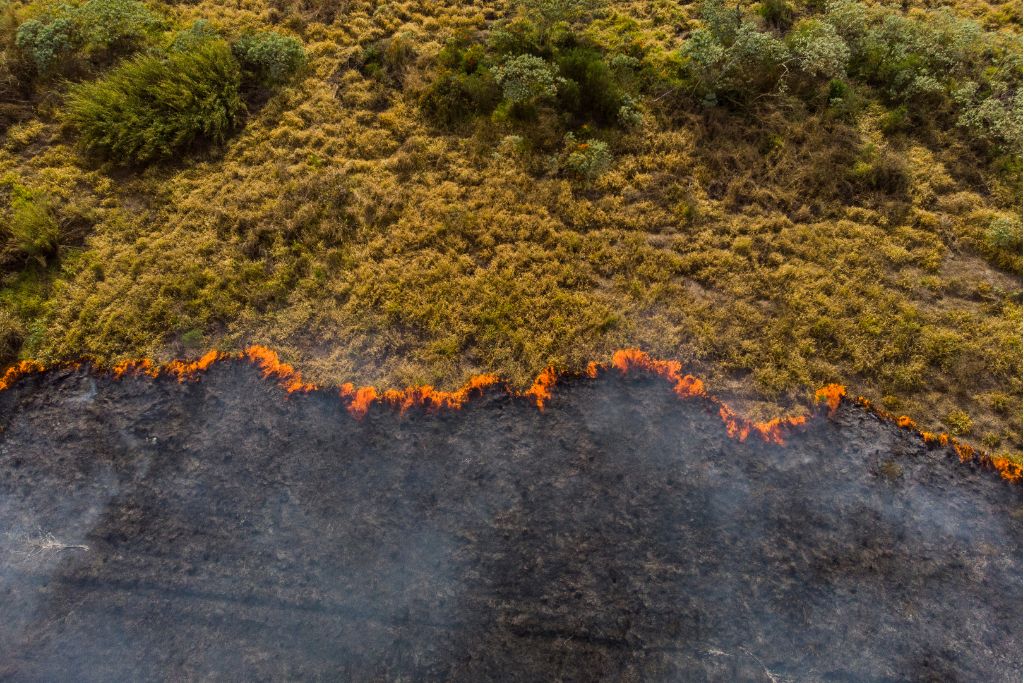Brazil saw over 17,000 fire outbreaks from January to April, an 81% increase compared to the same period in 2023. The record surge in wildfires was fuelled by a long-running drought in the Amazon region.
—
A Brazilian environmental workers union has partially blamed the government for a record surge in Amazon wildfires in the first four months of 2024.
In a report issued on Monday, workers union Ascema said the government cut budgets for the country’s environmental agency Ibama to fight fires by 24% compared to 2023, leaving the agency with less than half of the 120 million reais (US$23,5 million) it had requested to fight fires. The cuts sparked intense negotiations between Ibama and the federal government for better pay and working conditions.
“The government needs to understand that without total engagement from environmental workers, the situation foreseen for this year is unprecedented catastrophe,” Ascema President Cleberson Zavaski said, as reported by Reuters.
Brazil witnessed a concerning surge in fire outbreaks during the initial quarter of 2024, with over 17,000 recorded incidents from January to April, according to a report by the National Institute for Space Research (INPE). The surge marked an 81% increase compared to the same period in 2023, setting an unprecedented record in the past 26 years of data compilation.
Contributing to the fires is an unprecedented, months-long drought in the Amazon River. The drought was intensified by El Niño, a weather pattern associated with the warming of the Pacific that last year and in the first months of 2024 brought off the charts temperatures to parts of the world, including South America.
The largest rainforest on Earth, home to about three million species of plants and animals, as well as one million indigenous people, plays a crucial role in mitigating the impacts of climate change due to its capacity for absorbing substantial amounts of greenhouse gases from the atmosphere. Yet, persistent deforestation and a sharp increase in wildfires risk are turning this carbon sink into a source of carbon.
Since the beginning of his presidency in 2023, President Luiz Inacio Lula da Silva of Brazil has positioned himself as a global advocate for safeguarding the Amazon rainforest and reinstating Brazil’s prominent role in climate policy. Last year, deforestation dropped significantly.
Wildfire rates also decreased by about 16% between 2022 and 2023, though forest fires affecting old-growth – or primary – Amazonian forests surged by 152%, threatening biodiversity and carbon stocks, according to a study published earlier this year. Primary forests are an undisturbed, intact forest ecosystem that has never been significantly impacted by human activities or undergone substantial human-induced changes.
In February, experts warned that between 10% and 47% of South America’s Amazon Rainforest is at risk of reaching a tipping point by mid-century, owing to “unprecedented stress” from a combination of climate change-related drivers, a new study has found.
This story is funded by readers like you
Our non-profit newsroom provides climate coverage free of charge and advertising. Your one-off or monthly donations play a crucial role in supporting our operations, expanding our reach, and maintaining our editorial independence.
About EO | Mission Statement | Impact & Reach | Write for us


















